Jeremy Nadal
Limited-Fronthaul Cell-Free Hybrid Beamforming with Distributed Deep Neural Network
Jun 30, 2021

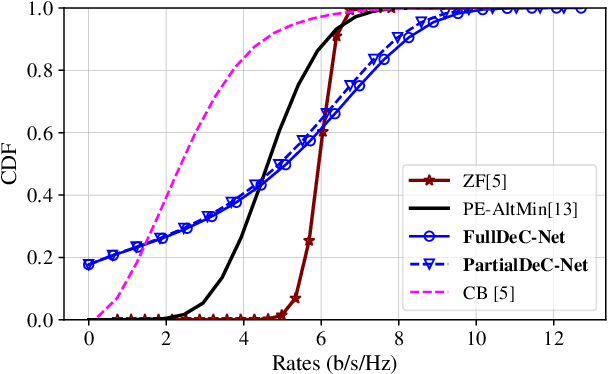

Abstract:Cell-free massive MIMO (CF-mMIMO) systems represent a promising approach to increase the spectral efficiency of wireless communication systems. However, near-optimal solutions require a large amount of signaling exchange between access points (APs) and the network controller (NC). In addition, the use of hybrid beamforming in each AP reduces the number of power hungry RF chains, but imposes a large computational complexity to find near-optimal precoders. In this letter, we propose two unsupervised deep neural networks (DNN) architectures, fully and partially distributed, that can perform coordinated hybrid beamforming with zero or limited communication overhead between APs and NC, while achieving near-optimal sum-rate with a reduced computational complexity compared to conventional near-optimal solutions.
Unsupervised Deep Learning for Massive MIMO Hybrid Beamforming
Jul 02, 2020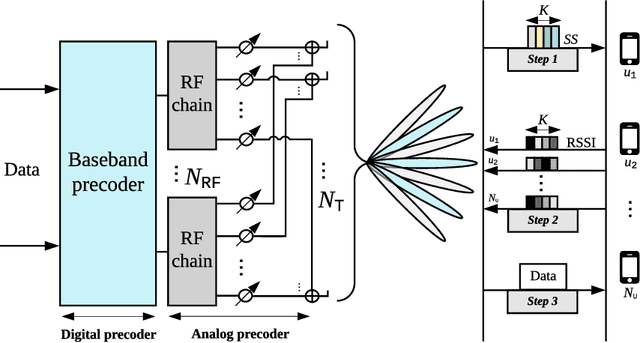
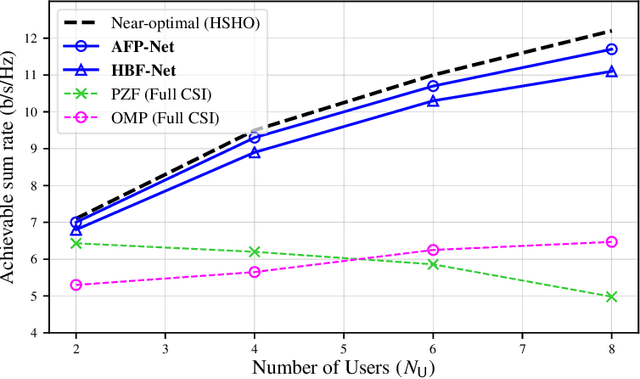
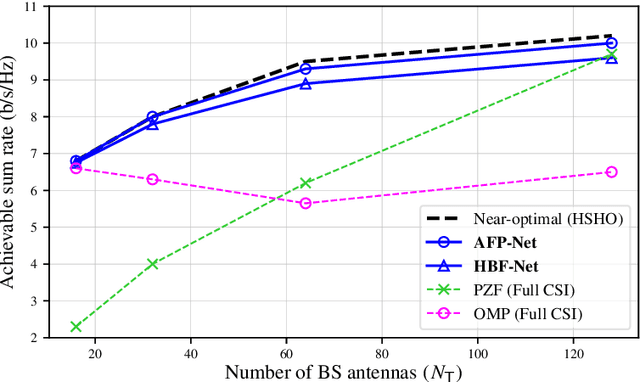
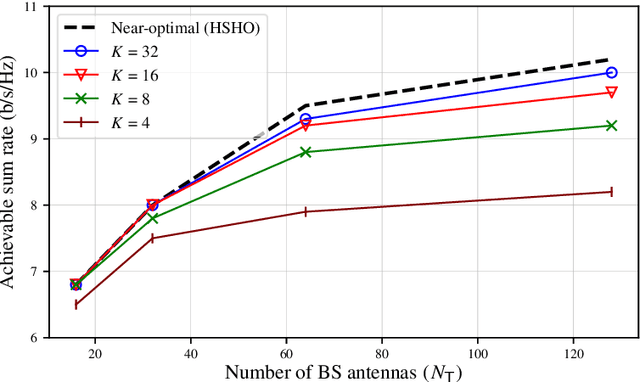
Abstract:Hybrid beamforming is a promising technique to reduce the complexity and cost of massive multiple-input multiple-output (MIMO) systems while providing high data rate. However, the hybrid precoder design is a challenging task requiring channel state information (CSI) feedback and solving a complex optimization problem. This paper proposes a novel RSSI-based unsupervised deep learning method to design the hybrid beamforming in massive MIMO systems. Furthermore, we propose i) a method to design the synchronization signal (SS) in initial access (IA); and ii) a method to design the codebook for the analog precoder. We also evaluate the system performance through a realistic channel model in various scenarios. We show that the proposed method not only greatly increases the spectral efficiency especially in frequency-division duplex (FDD) communication by using partial CSI feedback, but also has near-optimal sum-rate and outperforms other state-of-the-art full-CSI solutions.
 Add to Chrome
Add to Chrome Add to Firefox
Add to Firefox Add to Edge
Add to Edge